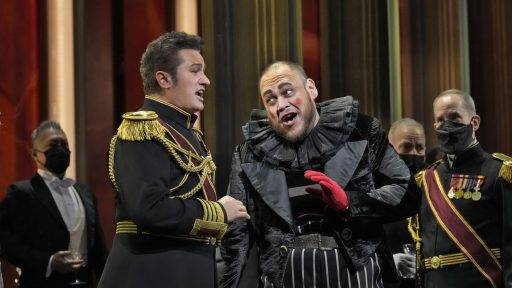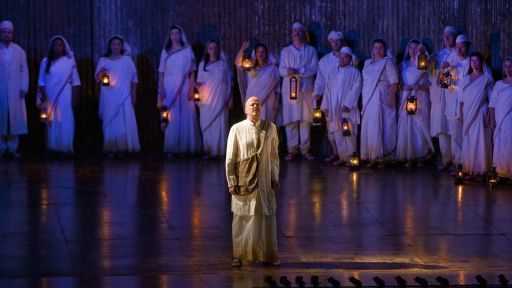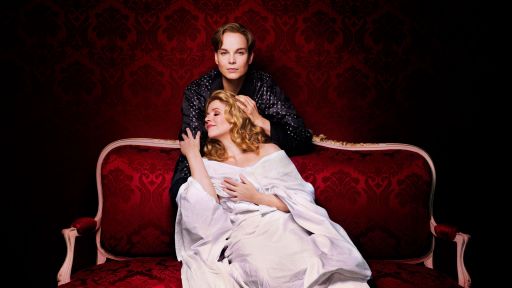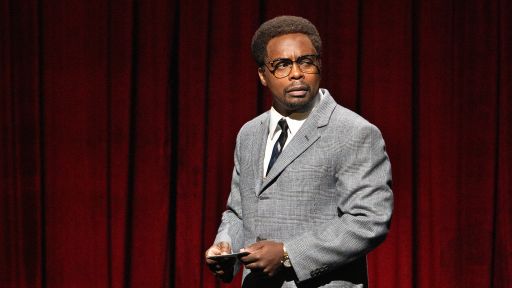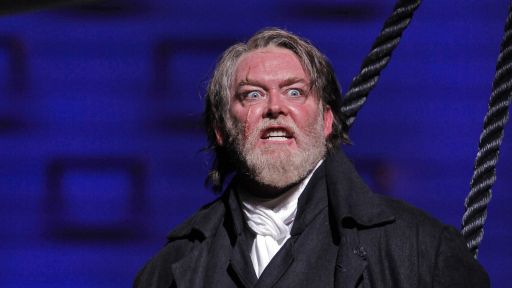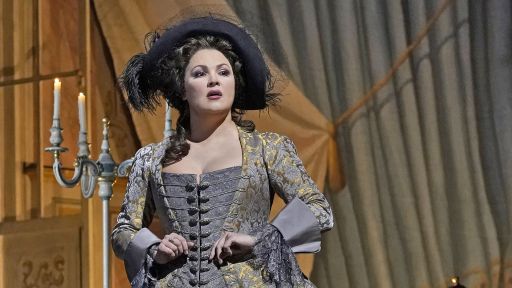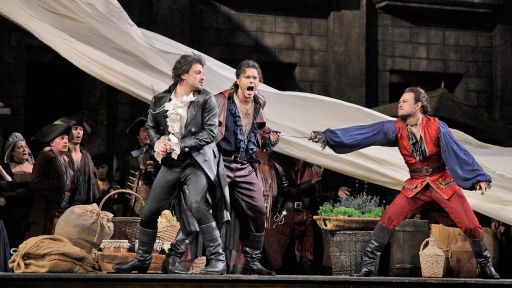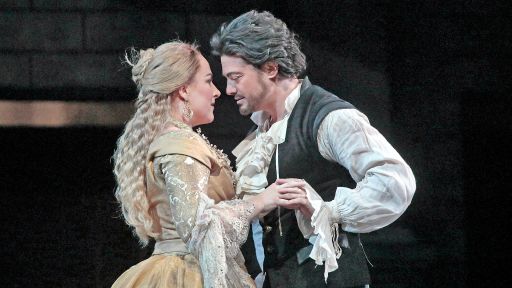Director Bartlett Sher discusses the making of Gounod’s Roméo et Juliette at The Met. Diana Damrau and Vittorio Grigolo perform as the star-crossed lovers in Gounod’s Roméo et Juliette on Great Performances at the Met, premiering Friday, April 14 at 9PM on PBS.
Features
BARTLETT SHER: There are many ways to have iterations of Shakespeare in film, in opera, in musicals. I think opera is one of the best and especially for certain of the plays like Othello, like Romeo and Juliet, they just are so heightened and you can really, really go for the scale of his expression of Shakespeare's expression in the music.
It's traditionally a early Renaissance setting in Verona, Italy.
Very tall imposing Italian structure with a composite of walls and windows, high walls and windows, so you get a sense of crowds.
It's a mixture of being like in an Italian piazza so that you can feel the social nature of the story and a quality of a balcony. It's one of those shows where you can have different versions of what that's going to be...they do need to come down and sing next to each other... but a balcony is fairly required.
In our design for the clothes we were highly influenced by the movie of Fellini's Casanova which is more 18th century.
I wanted the party in the beginning to feel more decadent and a little bit more layered in that way so that the clothing is pretty extreme in terms of decadence and richness and wealth.
Diana Damrau is probably the single most talented person I've ever worked with.
She is physically so gifted, she sings better than anyone else, her acting is extraordinary, her intelligence is at the highest level.
It was very exciting the idea of being able to do Juliet with her.
[Opera singing] In Milan, I did Romeo with Vittorio.
He has an exuberance as a tenor.
He has genuine charm, his voice is extraordinary.
But he's a little bit on the dangerous side.
He could do anything at any point.
[Opera singing] And when you have the kind of passions and exuberance that goes into this couple who can't seem to stay away from each other, you need this sense of danger, this sense of taking risks that the culture is not really prepared for.
That they would do anything and that becomes a kind of revolutionary gesture in the piece and those are two singers that are capable of revolutionary gestures.
What makes a great opera is the weird combination of a heightened emotional expression, a great singer, and a composer who can like push it off the charts somehow.
Where all of that comes together and you forget you're sitting in a theater but you're hearing this exposed, overwhelming, emotional thought at the biggest possible scale you can with the highest level of skill and then you're like Holy Moses...now I understand why I'm sitting here.
[Opera singing] [Instrumental music]
You May Also Like
